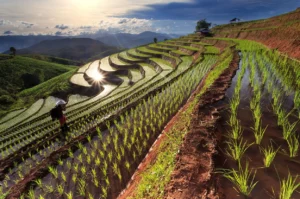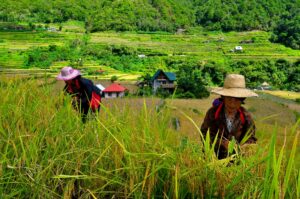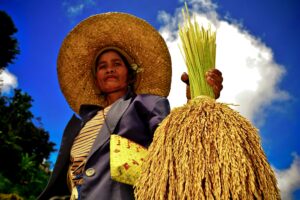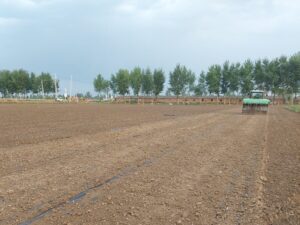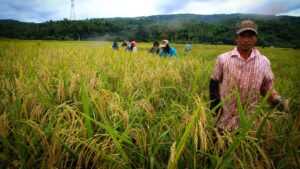
The Alarm project will help researchers predict how climate change will affect rice-growing regions such as this area along the Magat River, which separates the plains of Nueva Viscaya and the mountains of Ifugao Province in Luzon, Philippines.
Climate change and human alterations of the landscape—for agriculture and housing, for example—are virtually certain to affect biodiversity and the stability of ecosystems. This is simply because, although certain species will be favored by changes, others will not. The simplicity, however, stops there.
It is relatively easy to test how something like increased temperature will affect an organism. We can isolate almost any organism, put it in a box, and observe how it responds to environmental changes we can simulate in a controlled setting, such as a laboratory. We might find, for example, that warming benefits this isolated organism. But what if warming also benefits a disease of this organism? What if temperatures become too warm for other organisms on which our hypothetical organism depends, such as its prey if it’s a predator or a pollinator of its host plant if it’s an herbivore? What if warming benefits a competitor even more?
Once we step outside the small hypothetical box that defines just one organism, or some isolated part of an ecosystem, and start to ask questions about how it will interact with other “boxes” in the environment, we’re quickly inundated with uncertainty about how environmental change will reshape our world (see box).
Another challenging aspect to developing an understanding of interactions between components of a complex system is the matter of communication. The different scientific disciplines—which can be thought of as different boxes in which scientists work—have traditionally been viewed as distinct and have developed strikingly different languages. As a result, interdisciplinary collaboration tends to be rare because getting through language barriers with someone in a different discipline requires a lot of valuable time and energy for people that don’t generally have a lot to spare.


